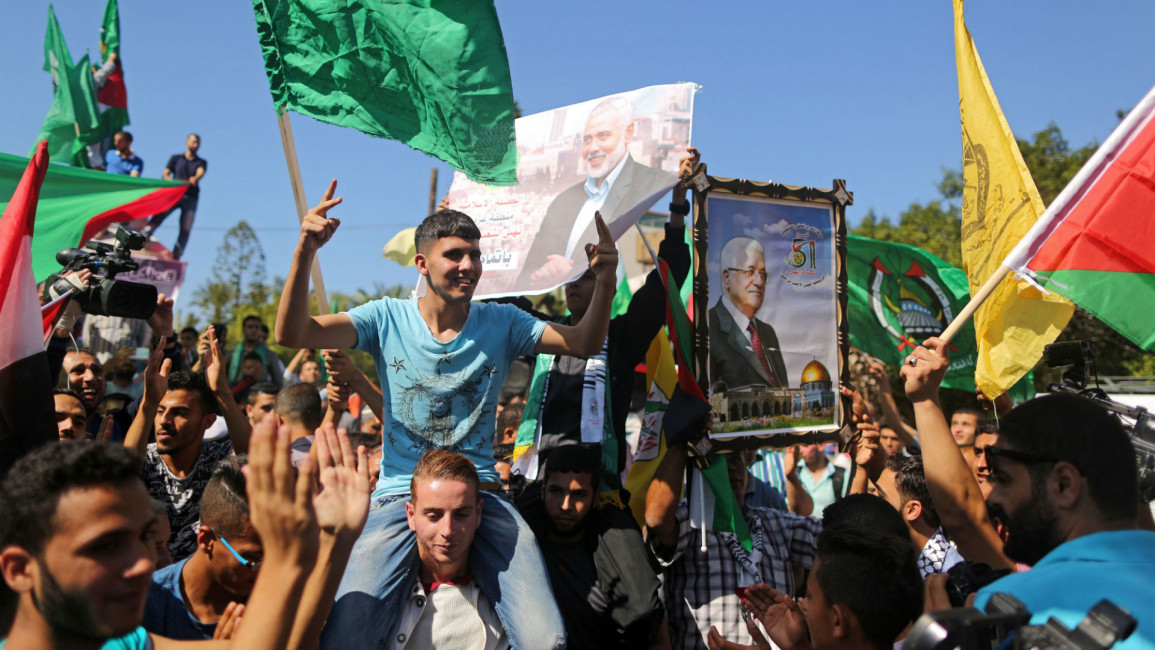US demands Hamas 'recognise Israel, disarm' in unity deal
A top aide to US President Donald Trump on Thursday demanded that an emerging Palestinian government recognise Israel and disarm Hamas as part of a recent unity deal.
Rival Palestinian factions Hamas and Fatah signed an agreement last week to end a decade-long split following talks mediated by Egypt in Cairo, with President Mahmoud Abbas calling it a "final" accord.
Israel responded to the deal by vowing it would not negotiate with a unity government that includes Hamas unless it agreed to a list of demands, including recognising Israel and disarming.
"Any Palestinian government must unambiguously and explicitly commit to nonviolence, recognise the state of Israel, accept previous agreements and obligations between the parties - including to disarm terrorists - and commit to peaceful negotiations," Trump aide Jason Greenblatt said in a statement.
"If Hamas is to play any role in a Palestinian government, it must accept these basic requirements," Greenblatt said.
The comments, roughly in line with principles set out by the Quartet for Middle East peace, were Washington's first detailed response to the Palestinian reconciliation deal.
Other Israeli demands include returning the remains of two Israeli soldiers killed in Gaza.
'Blatant interference'
Senior Hamas official Bassem Naim condemned Greenblatt's statement and accused the United States of adopting Israeli Prime Minister Benjamin Netanyahu's positions.
"This is blatant interference in Palestinian affairs because it is the right of our people to choose its government according to their supreme strategic interests," Naim told AFP.
"This statement comes under pressure from the extreme right-wing Netanyahu government and is in line with the Netanyahu statement from two days ago."
The Palestine Liberation Organisation (PLO), an umbrella group of Palestinian parties which Hamas is not part of, has recognised Israel.
Hamas has not and is blacklisted as a terrorist group by the United States and European Union.
The unity deal signed last week ends a bitter ten-year split between the two main Palestinian factions, which has seen Hamas run the Gaza Strip and Fatah control the West Bank since 2007.
The Palestinian Authority is due to resume control of the Gaza Strip by December 1 under the deal.
Talks are also expected on forming a unity government, with another meeting between the various Palestinian political factions scheduled for November 21.
Previous attempts at reconciliation have repeatedly failed, and many analysts are treating the latest bid with caution, waiting to see if actual change will occur on the ground.
A major sticking point is expected to be Hamas's refusal to disarm its 25,000-strong armed wing.
A previous attempt at a unity government in 2014 was made up of technocrats deemed acceptable by the international community, though that bid fell apart.


![President Pezeshkian has denounced Israel's attacks on Lebanon [Getty]](/sites/default/files/styles/image_684x385/public/2173482924.jpeg?h=a5f2f23a&itok=q3evVtko)



 Follow the Middle East's top stories in English at The New Arab on Google News
Follow the Middle East's top stories in English at The New Arab on Google News


